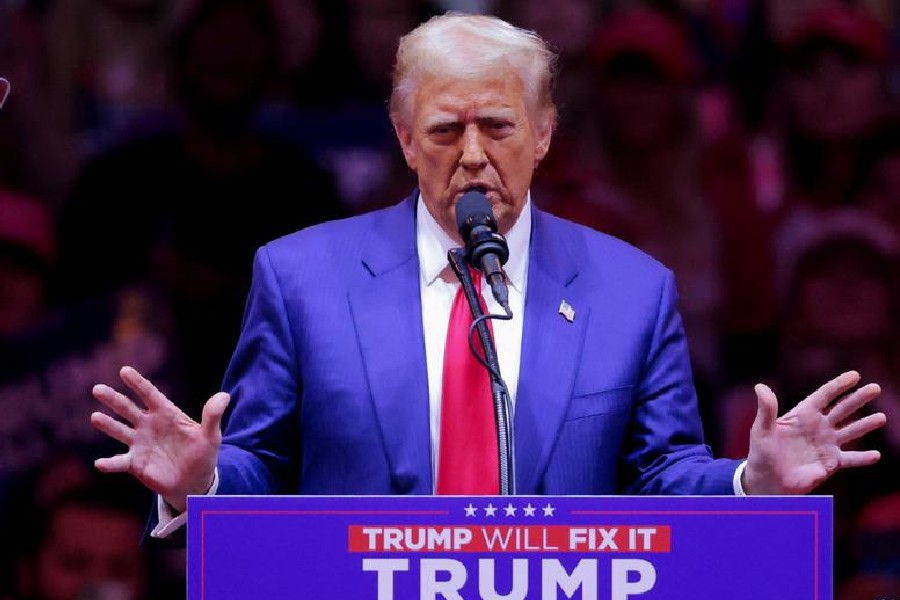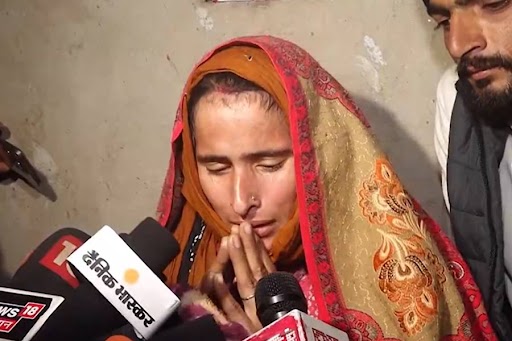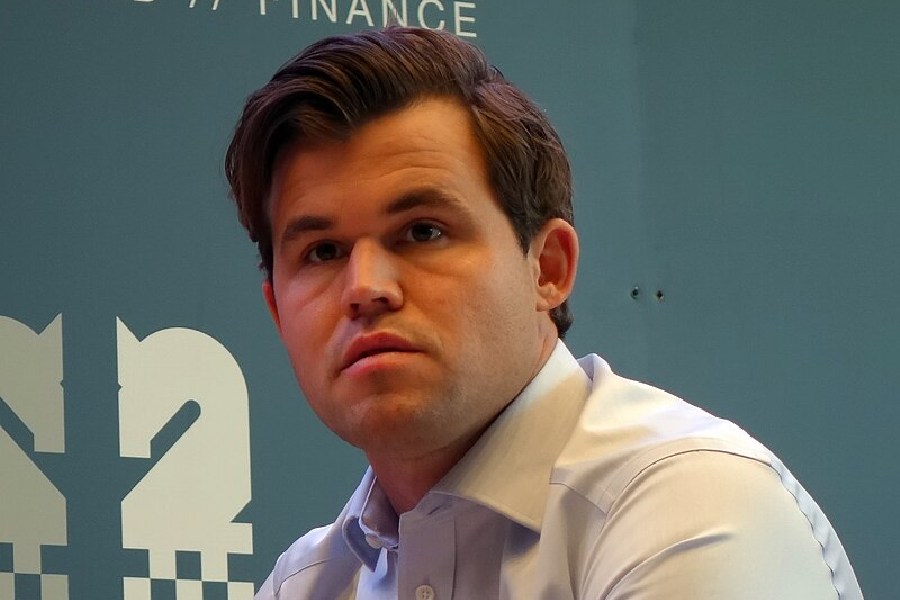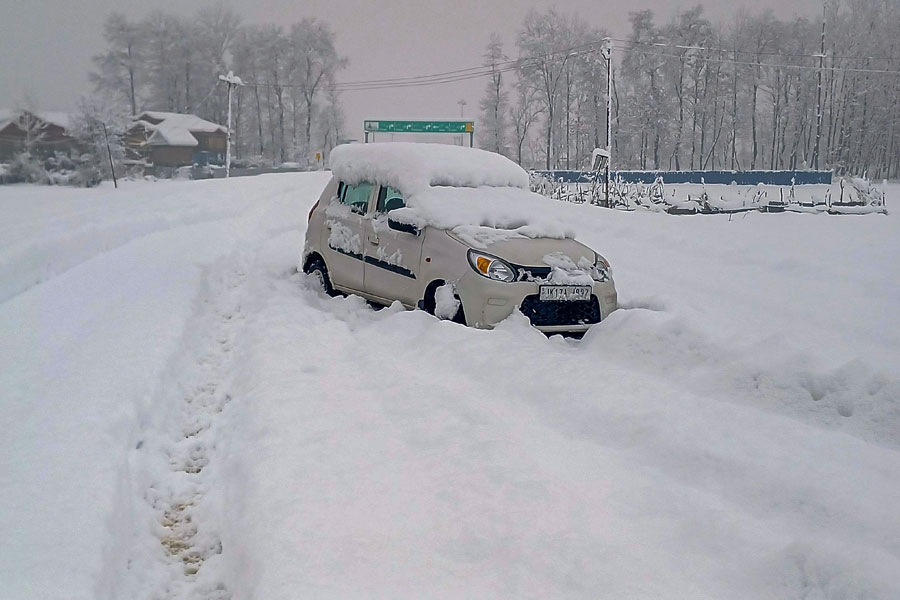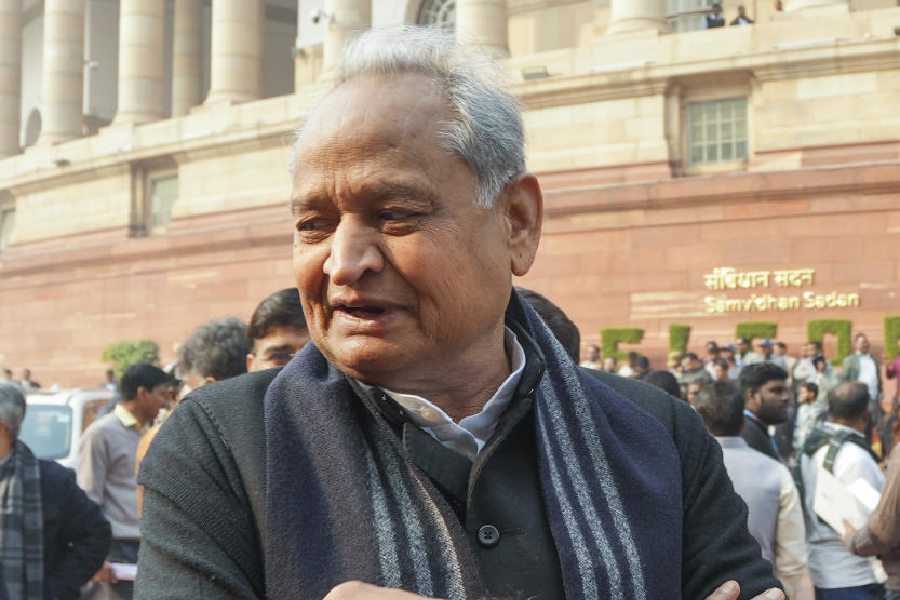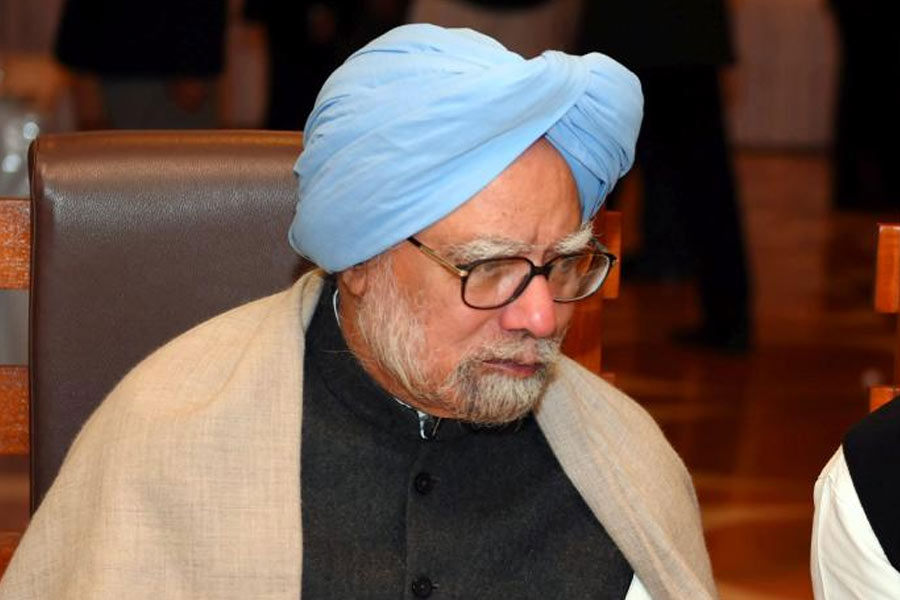Donald J. Trump’s closing rally at Madison Square Garden on the second to last Sunday before the election was a release of rage at a political and legal system that impeached, indicted and convicted him, a vivid and at times racist display of the dark energy animating the MAGA movement.
A comic kicked off the rally by dismissing Puerto Rico as a “floating island of garbage”, then mocked Hispanics as failing to use birth control, Jews as cheap and Palestinians as rock-throwers, and called out a Black man in the audience with a reference
to watermelon.
Another speaker likened Vice-President Kamala Harris to a prostitute with “pimp handlers”. A third called her “the Antichrist”. Former Fox News host Tucker Carlson mocked Harris — the daughter of an Indian mother and a Jamaican father — with a made-up ethnicity, saying she was vying to become “the first Samoan-Malaysian, low IQ former California prosecutor ever to be elected President”.
By the time the former President himself took the stage, an event billed as delivering the closing message of his campaign, with nine days left in a tossup race, had instead become a carnival of grievances, misogyny and racism.
If the parade of speakers felt at times like a Republican National Convention reunion — Senator J.D. Vance of Ohio, Carlson, Vivek Ramaswamy, Alina Habba, Lee Greenwood, the Trump family all appeared — they seemed to have returned for a bonus fifth night that was more inflammatory than the original in July.
The rally served as a capstone to an escalating series of remarks from Trump, who has repeatedly said in recent days that one of the gravest threats that America faces is “the enemy within”. Democrats have cranked up warnings of Trump’s descent into authoritarianism as John F. Kelly, the former Marine general who was his longest-serving chief of staff, warned that Trump met the definition of a fascist.
“When I say ‘the enemy from within,’ the other side goes crazy,” Trump said on Sunday, mocking his critics.
Since early in his campaign, he has broadly promised an era of “retribution” if he wins.
On Sunday, Trump described the date of his potential election as a “liberation day” from what he described as an occupation by invading migrants.
Harris’s campaign seized on the spectacle, and some Republicans, including from Florida and Puerto Rico, denounced the comic’s comments about the island. Several influential Puerto Rican superstars, Bad Bunny, Jennifer Lopez, Luis Fonsi and Ricky Martin, lent their voice for Harris on Sunday.
But Trump has paid little political price over time for his own inflammatory remarks in the past — he has disparaged cities with large Black populations such as Detroit and Milwaukee this year — let alone those of his surrogates and supporters.
The marathon of speeches — Trump took the stage two hours after scheduled — was often infused with more self-indulgence than political strategy. Trump plainly enjoyed playing the Garden, which bills itself as “the world’s most famous arena”.
“Kamala, you’re fired!” Trump said, returning to the line that he first made famous as host of The Apprentice.
But he went so long that the crowd had begun to thin noticeably before he had finished his 78-minute speech.
The event was a spectacle that captured the unusual and sometimes ugly range of the MAGA movement that has taken over the Republican Party from the inside over the last nine years.
Hulk Hogan flexed his muscles and ripped off his clothes, just as he did at the convention. Donald Trump Jr called his father a “badass”. The world’s richest man, Elon Musk, who has poured $118 million of his fortune to aid Trump so far, entered to a video of his rocket booster landing, pumping his fists in the air. He promptly predicted the federal budget could be slashed by one-third even as Trump rolled out deficit-expanding tax breaks.
Stephen Miller, a senior Trump adviser who influenced his anti-immigrant crackdown, used nativist language as he argued that only Trump would stand up and say “America is for Americans and Americans only”.
The big surprise was a rare public speech by Melania Trump, who introduced her husband and exited the stage with him after he had finished, as the Village People’s YMCA blared.
The arrival of thousands of red hats at the symbolic arena at the centre of a blue city in a blue state was celebrated by Trump supporters who relished the chance to collectively thumb their noses at the New York and national elite.
It was lost on no one that Trump was just kilometres from where he was convicted of 34 felony counts earlier this year and still awaiting sentencing, and a short jaunt to Trump Tower, where he opened his first presidential campaign in 2015.
The singular nature of Trump’s candidacy was emblazoned in slogan form on the scoreboard above as he began to speak: “Trump will fix it.”
Trump opened by asking the crowd a timeworn political line: “Are you better off now than you were four years ago?” It is at the core of Trump’s campaign against Harris ever since she replaced President Joe Biden, a switch he remains sore about.
Despite being delivered in a city that four years ago was the epicentre of the coronavirus pandemic and still deep in shutdowns and closed businesses, and swimming in a high death toll, that line landed well.
Trump’s vows of mass deportation and inveighing against undocumented immigrants had an audience in New York City, too, where thousands of migrants who crossed the southern border without authorisation have been given sanctuary and some residents have complained about the use of city services to help them.
So many of the day’s warm-up speeches were spent portraying the former President as he wants to be seen. Several speakers talked about him surviving a July assassination attempt not in spiritual terms but in muscular ones, describing his toughness at “dodging” the bullet. Many also falsely claimed he “built” the skyline in a city in which he was always seen as a B-list developer with a small portfolio of buildings that he acquired long after they were constructed.
“The king of New York is back to reclaim the city that he built,” his son, Donald Trump Jr, declared anyway.
The elder Trump, who normally speaks only glowingly about his late father, Fred, from whom he inherited millions of dollars and the spine of his real-estate company, delivered a surprising line about his parents as he reflected on how they would be receiving word of his legal travails.
“I know my mother’s in heaven, I’m not 100 per cent sure about my father, but it’s close,” Trump said, to laughter in the arena.
It was all a surreal scene.
At one point, the painter Scott LoBaido received a huge cheer when he flipped a middle finger to the crowd before grabbing a paintbrush to paint an American flag as America the Beautiful boomed.
The grand finale was revealing an image of Trump hugging the Empire State Building.
Later, the television host Phil McGraw, known as Dr Phil, lectured the crowd on why Trump did not fit the definition of “a bully” because a bully requires “an imbalance of power”, seeming to ignore the fact that Trump has enormous power as a billionaire and former President.
David Rem, a childhood friend of Trump, called Harris “the devil”. Grant Cardone, a businessman, declared that the sitting Vice-President had “pimp handlers”.
When the comedian Tony Hinchcliffe made his remark about Puerto Rico, there were groans from many in the audience.
On the same afternoon, Harris was in Philadelphia, courting Pennsylvania’s significant Latino population and stopping by Freddy & Tony’s, a Puerto Rican restaurant.
“Timing is everything,” David Plouffe, a top Harris adviser, wrote on X, posting clips of the two side-by-side.
In his White House bid, Trump has banked on winning uncommon shares of Black and Latino voters, in part by leaning into culture wars that split the Democratic Party.
Twenty years ago, in the same arena, Rudolph W. Giuliani delivered the keynote address at the 2004 Republican National Convention, three years after the September 11 terrorist attack prompted then-President George W. Bush to caution the nation against hate.
On Sunday, Giuliani leaned into overbroad stereotyping against the Palestinian people, who he said “are taught to kill us at two years old”.
“I don’t take a risk with people that are taught to kill Americans at 2,” he said. “I’m on the side of Israel.”
New York Times News Service

